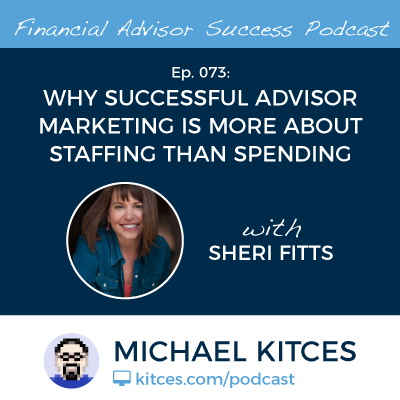Welcome, everyone! Welcome to the 74th episode of the Financial Advisor Success Podcast!
My guest on today's podcast is Diane MacPhee. Diane is the founder of DMAC Consulting, a financial advisor coaching and practice management consulting firm that specializes in solo and emerging ensemble advisory firms.
What's unique about Diane, though, is that before she was a coach for financial advisors, she was a fee-only financial planner herself for 16 years, and as a result brings a unique perspective with both the experience of a financial advisor and the training of being a professional certified coach.
In this episode, we talk in depth about the challenges of being a successful solo financial advisor, the self-limiting beliefs we sometimes inflict on ourselves that prevents us from growing and being as successful as we could be, why it's so hard to set the "right" fee for clients (and especially to raise fees when we should), and why the #1 element to success as an advisor is to really find and get control of your own self-confidence, so you can confidently articulate your value to clients and prospects.
We also talk about strategies to break through when you hit "The Wall" in your practice – that point where you're at capacity with the number of clients you serve, and you can start to feel tired, or overwhelmed, or outright drowning in your own practice – and why eventually, the key to continued success is not about figuring out how to hire more staff or use technology more efficiently or new marketing ideas to grow and add more clients, but how to transition to the right clients for you... even if that means it's time for an "amicable termination" from some of your existing clients.
And be certain to listen to the end, where we talk about the key transition to make if you do want to grow into an ensemble practice beyond yourself... which is all about hiring people you can trust, and learning to let go and not be the bottleneck in your own advisory firm. Which, unfortunately, is much easier said than done.
So whether you are interested in learning more about the challenges of being a successful solo financial advisor, are interested in how to identify the right clients for you, or are wondering how you can build a true ensemble firm that extends beyond yourself, I hope you enjoy this episode of the Financial Advisor Success podcast!









 Welcome, everyone! Welcome to the 73rd episode of the Financial Advisor Success Podcast!
Welcome, everyone! Welcome to the 73rd episode of the Financial Advisor Success Podcast!
